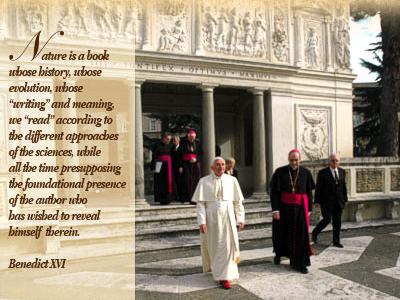"U.N. observers in Syria see gruesome evidence of a new massacre"The Los Angeles Times seems to be doing fairly straightforward reporting. And, sadly, Syria's boss has another mass death of civilians to explain.
Los Angeles Times (June 8, 2012)
"Bullet-pocked homes and bloodstained walls. Shell casings littering the ground in a ghost town still smoldering from the onslaught.
"A United Nations observer team on Friday finally reached the site of Syria's latest apparent massacre, a now-abandoned farming village where opposition activists accuse pro-government forces of killing dozens of civilians this week in an artillery bombardment and grisly door-to-door executions.
" 'Young children, infants, my brother, his wife and seven children … all dead,' said a grieving man in a video distributed by the U.N. 'I will show you the blood. They burned his house.'..."
"The U.N.'s Syria disaster"
The Post's View, The Washington Post (June 8, 2012)
"THIS MAY BE remembered as the week in which the illusion that the bloodshed in Syria could be stopped by United Nations diplomats was destroyed once and for all. Inside the country, the killing sharply and sickeningly accelerated. In Washington, U.N. envoy Kofi Annan finally had to acknowledge that his calamitous peace initiative, which has provided the United States and its allies with an excuse for inaction for the past 11 weeks, 'may be dead.'
"Mr. Annan's concession was forced in part by the latest massacre by a government-backed militia. In a village near Hama, some 80 people were butchered and their homes burned...."
"In Its Unyielding Stance on Syria, Russia Takes Substantial Risks in Middle East"
Ellen Barry, News Analysis, The New York Times (June 8, 2012)
"MOSCOW - The international deadlock over Syria has, in a dreadful way, provided balm for old grievances in this city. After years of fuming about Western-led campaigns to force leaders from power, Russia has seized the opportunity to make its point heard.
"This time, its protests cannot be set aside as they were when NATO began airstrikes in Libya or when Western-led coalitions undertook military assaults in Iraq and Serbia. Instead, the international community has come to Russia’s doorstep.
" On Friday, a top State Department official visited Moscow, presumably seeking to persuade the Kremlin to reconsider its stance and contribute to an effort to engineer a transition from the rule of President Bashar al-Assad of Syria, a longtime Russian ally. In remarks after the meeting, Russia's top negotiator was implacable, telling a reporter that Moscow’s position was 'a matter of principle.'
"Russia's leaders have said repeatedly that their goal is to guard against instability, not to support Mr. Assad...."
"United Nations frets about 'sitting duck' monitors in Syria"
Tim Witcher, The Daily Star (UK) (June 9, 2012)
"The United Nations is increasingly worried about the unarmed observers it has sent into Syria to monitor the war between President Bashar Assad's troops and opposition rebels.
"The U.N. Supervision Mission in Syria is caught between hostile troops accused of firing at its patrols and increasingly bitter Syrians who cannot understand why it has not halted the bloodshed, officials said.
"Susan Rice, U.S. ambassador to the United Nations, likened the monitors to '300 sitting ducks in a shooting gallery, one IED from a disaster,' at a recent U.N. Security Council meeting...."
The Washington Post's op-ed may have something to do with the upcoming November presidential election: or not. Either way, it looks like the W.P. has decided that asking Syria's boss to start acting nice isn't working.
The New York Times' op-ed seems to imply that (nice) Russia is protecting the world against the (nasty) west:
"...After years of fuming about Western-led campaigns to force leaders from power, Russia has seized the opportunity to make its point heard...."I could be wrong about that, of course.
(The New York Times)
The Daily Star brings up an important point: the U.N. observers are in an awkward position. Folks in Syria understandably seem to want the observers to 'do something.' Which is frustrating, since the U.N. observers are doing just that: observing.
And since even Syria's neighbors don't particularly like outsiders observing what happens to Syrians when they're not properly appreciative of Asad, the U.N. observers are under attack themselves.
What continues to impress me about the situation in Syria is that, as far as I've seen, nobody's figured out a way to blame the Jews. As I've said before:
"...this is, I think, a hopeful sign. Maybe more folks are starting to consider the idea of living with neighbors: instead of killing them.Finally, about Russia's decision to defend Asad's regime: Stability is nice. But it seems to me that Syrians who aren't on Asad's 'preferred' list don't want "stability." They want a government that doesn't kill its own citizens.
"It's a start, and that's yet another topic."
(May 26, 2012)
I think that's a reasonable desire.
Somewhat-related posts:
- Mostly Syria
- "Killings in Houla: There's Hope in What Wasn't Said"
(May 26, 2012) - "Syrian Ambassador: Reactor? That's No Reactor"
(April 24, 2008) - "Satellite Images of Syrian Reactor / Warehouse"
(October 25, 2007) - "Syria Accuses America, North Korea Threatens South Korea: Nothing New Here"
(October 28, 2008)
Particularly - "Nuclear Stockpile Bombed?"
(September 16, 2007)
- "Killings in Houla: There's Hope in What Wasn't Said"
- Mostly Russia
- "Russian Submarines Near America: There's Probably a Reason"
(August 4, 2009) - "'The Americans Hanged Saddam Hussein:' Who Knew?"
(November 14, 2008) - "Russia Is Peace-Loving, Has No Territorial Ambitions: and Georgia is America's Fault"
(October 19, 2008) - "Russia, Iran, Nuclear Weapons: Not Much Has Changed"
(September 27, 2008) - " 'Quagmire's' Back: Georgia, Russia, NATO, Bush, and the Blame Game"
(August 24, 2008)
- "Russian Submarines Near America: There's Probably a Reason"
- Autocrats and a changing world
- "Six Battalions, the United Nations, ' - - - and it is the Fault of the Jews' "
(May 2, 2012) - "Arab League: Syria Suspended - My Take"
(November 13, 2011) - "Libya, Syria, Bahrain: Journalists Uncooperative; 'the Masses' Worse"
(March 29, 2011) - " 'The Jews Blew Up Our Reactor
(Which Does Not Exist)' "
(October 17, 2007) - "Doctors, Terrorists, and the Proletariat: What's a Person to Think?"
(July 3, 2007)
- "Six Battalions, the United Nations, ' - - - and it is the Fault of the Jews' "
- Today, and looking ahead
- "Still Blogging About Anachronisms, Autocrats, and America"
(October 8, 2011)
Particularly - "9/11, Just War, and 'Death to Mickey Mouse' "
A Catholic Citizen in America (September 11, 2011)
Particularly - "Libya, Interpol, and a Really Big Job"
(September 9, 2011)
Particularly - " 'Just War:' Unpleasant, but Not a Contradiction in Terms"
A Catholic Citizen in America (March 22, 2011) - "U.N. Condemns (What Else?) Israel: This Time it's Over an 'Aid Complex' "
(January 15, 2009)
- "Still Blogging About Anachronisms, Autocrats, and America"


